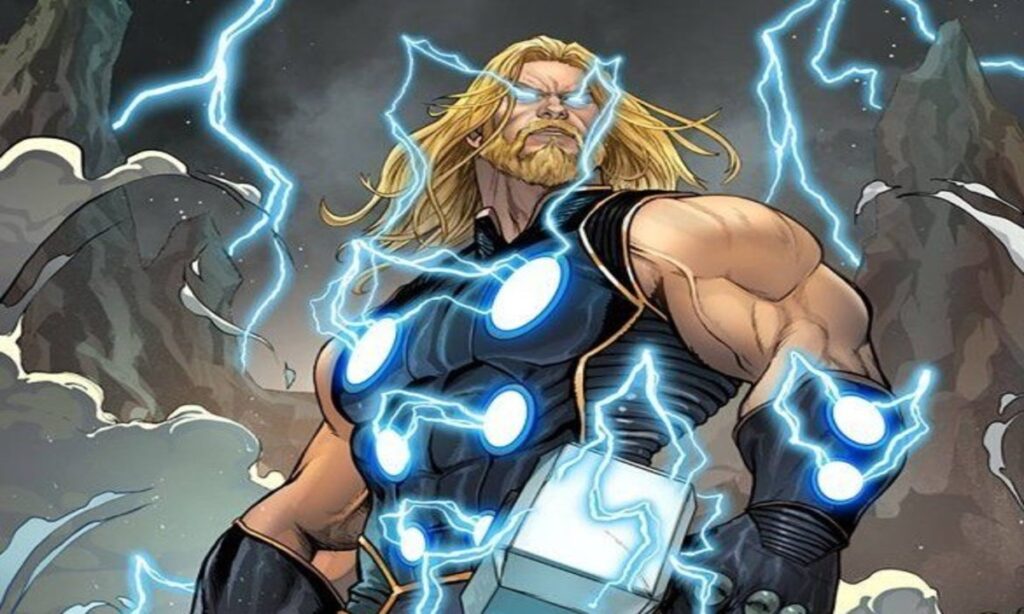When it comes to iconic superheroes, few are as powerful as Thor and Superman. While both have unmatched strength and abilities, their origins and limitations set them apart in unique ways. Superman, the alien from Krypton, has a glaring weakness in the form of Kryptonite, a radioactive mineral from his home planet. On the other hand, Thor, the mighty Norse God of Thunder, doesn’t have a specific, singular weakness. Instead, his challenges come from his godly nature, emotional struggles, and external cosmic threats. Let’s dive deeper into their powers, vulnerabilities, and what makes them stand out as two of the most iconic heroes in comic book history.
Thor and Superman are both powerful superheroes, but they come from very different mythologies and creative origins, which explains why Thor doesn’t have a clear, single weakness like Superman’s Kryptonite. Here’s a detailed explanation:
1. Origin of the Characters
- Superman (DC Comics):
Superman was created in 1938 by Jerry Siegel and Joe Shuster. He is an alien from the planet Krypton, and his powers come from Earth’s yellow sun. His weakness to Kryptonite—a radioactive element from his home planet—was introduced to make his character more vulnerable and relatable. Without it, Superman would be nearly invincible, making stories predictable and less engaging. - Thor (Marvel Comics):
Thor is based on Norse mythology and was adapted into a Marvel character in 1962 by Stan Lee, Larry Lieber, and Jack Kirby. Thor is not a superhero in the traditional sense—he is a god, the Asgardian God of Thunder. His powers are innate, and tied to his divine nature, making him fundamentally different from Superman.
2. Why Thor Has No Clear Weakness
a. Divine Nature
Thor isn’t powered by something external (like the sun). He is inherently powerful because he is a god. While he can be injured or defeated by more powerful beings (like Hela, Surtur, or Thanos), these are not specific weaknesses—just stronger foes.
b. Mythology vs. Science Fiction
Superman is science fiction-based, so a scientific element like Kryptonite makes sense. Thor comes from mythology, where gods rarely have single, physical weaknesses like that. Instead, their challenges often come from fate, pride, or moral choices.
c. Character Balance Through Personality
Thor’s “weaknesses” are more emotional or psychological:
- Arrogance and pride (especially in early stories)
- His sense of duty and compassion, which can be exploited
- Attachment to people he loves (like Jane Foster, Loki, Odin)
These make his stories rich without needing a “Kryptonite.”
3. Narrative Flexibility
Marvel writers chose not to limit Thor with a singular vulnerability. Instead, they create tension and challenge through:
- Worthiness (he can lose access to Mjolnir if unworthy)
- Being overpowered by cosmic beings (like Galactus or Celestials)
- Complex personal relationships and Asgardian politics
This gives him more narrative flexibility than being held hostage by a rock like Superman.
4. Thor Can Be Beaten – Just Not Easily
Although Thor doesn’t have a Kryptonite, he is not invincible:
- He has been injured or even killed in some comics and alternate universes.
- Magical or cosmic weapons (like Gorr’s Necrosword) can harm him.
- Hela crushed Mjolnir in Thor: Ragnarok and easily overpowered him.
Conclusion
Thor doesn’t have a specific weakness like Superman because:
- He’s a mythological god, not a science fiction alien.
- His stories are driven by moral, emotional, or situational struggles.
- Writers maintain balance through more nuanced limitations rather than a singular vulnerability.
Here’s a comparison chart between Thor and Superman, focusing on their powers and weaknesses:
Thor vs. Superman – Powers & Weaknesses
| Category | Thor (Marvel) | Superman (DC) |
|---|---|---|
| Origin | Norse God of Thunder (Asgardian deity) | Alien from planet Krypton |
| Powers Source | Innate godhood, enchanted hammer (Mjolnir/Stormbreaker) | Solar energy from Earth’s yellow sun |
| Super Strength | ✔️ God-level strength | ✔️ Can lift planets in some versions |
| Flight | ✔️ Via Mjolnir/Stormbreaker | ✔️ Naturally powered by solar radiation |
| Durability | ✔️ Extremely high (takes hits from cosmic beings) | ✔️ Extremely high (survives nukes, black holes) |
| Speed | ⚡ Fast (especially with Bifrost/Mjolnir) | ⚡ Faster than light in some versions |
| Healing | ✔️ Fast healing, godly longevity | ✔️ Super healing under a yellow sun |
| Combat Skill | 🗡️ Master warrior, trained for millennia | 👊 Skilled but not god-tier trained |
| Weapons | 🔨 Mjolnir / Stormbreaker / Belt of Strength | ❌ None (uses fists, heat vision, etc.) |
| Magic Use | ✔️ Can summon lightning, enchantments | ❌ Vulnerable to magic |
| Main Weakness | ❌ No fixed weakness, but magic/weapons can harm him | ☢️ Kryptonite, ☀️ Red Sunlight, ✨ Magic |
| Emotional Weakness | ✔️ Arrogance, attachment to loved ones | ✔️ Compassion, emotional ties to Earth |
| Mental State Risks | Rage or unworthiness can affect power access | Rarely loses control unless under mind control |
| Vulnerability | Can be overpowered by cosmic/magic entities | Can be beaten using Kryptonite, red sunlight, magic |
Summary
- Thor is built for mythological and magical threats, more resilient to physical damage but challenged by cosmic or emotional burdens.
- Superman is incredibly powerful but bound by specific sci-fi limitations to keep him grounded in human-like struggles.
In conclusion, while Superman’s Kryptonite serves as a clear, tangible vulnerability, Thor’s lack of such a weakness allows for a wider range of narrative possibilities. Thor’s struggles come not from a single element, but from his divine responsibilities, relationships, and the powerful enemies he faces. Both characters are designed to embody different kinds of heroism—one rooted in cosmic strength and the other in mythological power. Whether you’re a fan of the Man of Steel or the God of Thunder, these two superheroes offer timeless stories that continue to inspire and entertain across generations.


